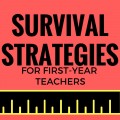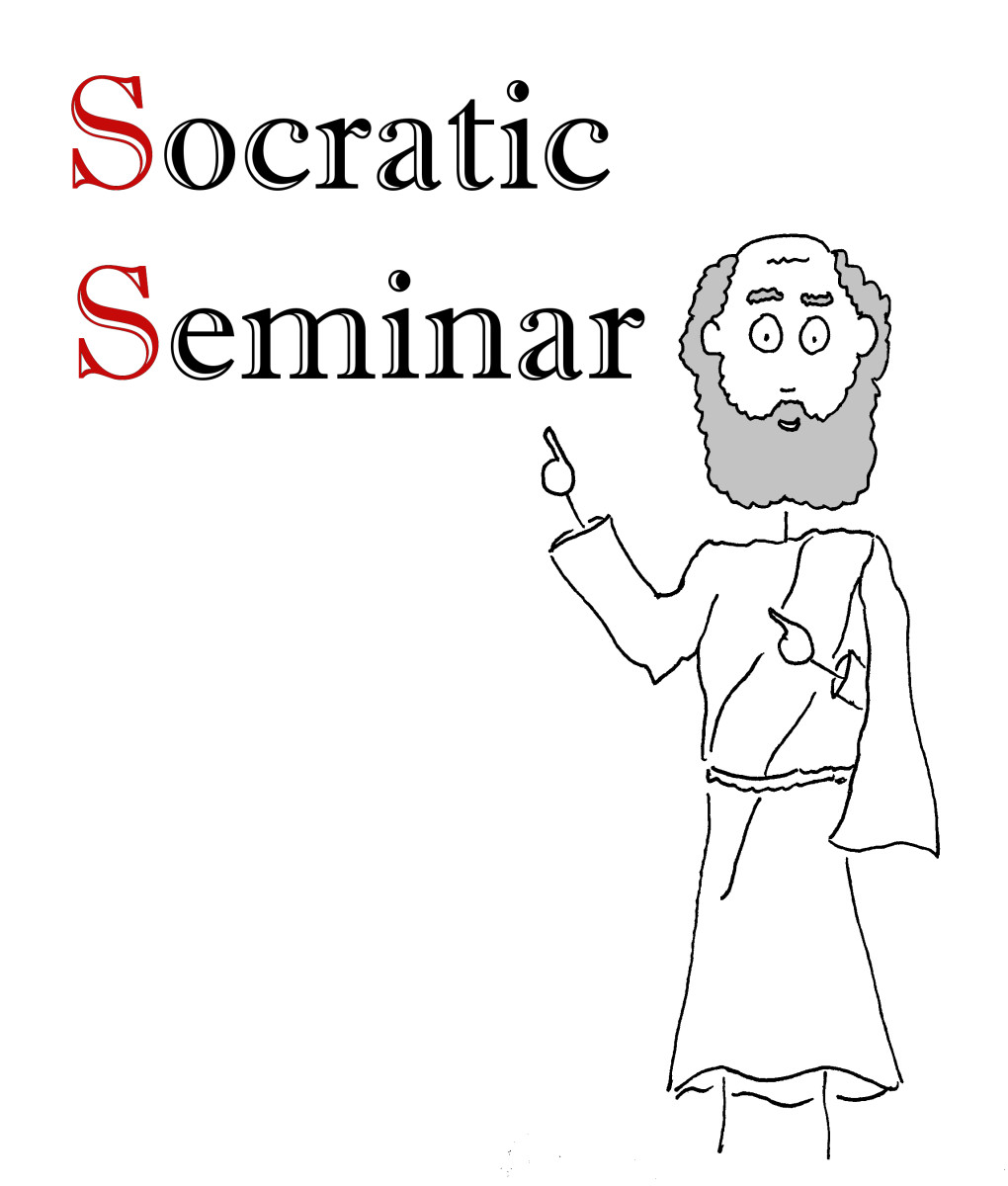Classroom Management | Authority in a Classroom

Importance of Classroom Management | Classroom Management Skills
How many times have we heard the question, "Define classroom management?" A classroom management system that works is not something that is easy to explain or achieve. Every teacher knows that positive classroom management is more an art than an easy to achieve goal.
This lens will discuss the basic requirements and strategies for the teachers to create and maintain classroom authority over their groups of students, to demand respect and cause a feeling of positive credibility, recognition and admiration.
Photo credit: Renato Ganoza / Foter / CC BY
Order in the classroom!
Creating an image of authority and maintaining good order in the classroom has become increasingly more difficult over the past few decades. Young, inexperienced teachers are faced with students who have attitudes that have changed dramatically in comparison with what the older and experienced teachers remember. Some of the changes that occurred led to greater self-confidence in students, others in turn led to acceptance of violence as a legitimate means to achieve an end, a large number of students regarding substance abuse as something normal that "happens", and an even greater number showed an increasing lack of respect for authority. All of these changes have made classroom management and education in itself generally much more difficult and demanding, and a positive learning environment has become almost impossible to create. However, the heart of the teaching profession is alleviating these issues before they even come to pass, and a competent teacher will know how to recognize and trim a problem before it comes to greater complications. A good teacher will know how to implement good strategies and methodologies to create and maintain an image of positive authority without even voicing any complaints or punishing any of the students. In order for a teacher to be successful, he or she needs to know a few things about basic psychology of students, regardless of their age. It is extremely important to have an air of authority, for the quality of the class will inevitably be questioned in the opposite case scenario.
Authority and Credibility
A dictionary definition of authority is "the power to enforce laws, exact obedience, command, determine, or judge". The definition we are seeking comes close to the general explanation of this term; however, in education, there are a few differences with regards to the person who is the authority and those who are subject to that authority. Therefore, there exist various explanations of this term, out of which only a few are adequate to shed light on this topic. With the new generations changing the entire teacher-student relation, it is becoming increasingly more difficult to pin this phenomenon down with words. The word phenomenon is used because it has come to the point where it is indeed a phenomenon that any kind of authority even exists in an average classroom.
Back when the education was considered to be a transmission of culture from the teacher to the student, teacher's authority, or authority of any elders was thought appropriate and often taken for granted. It is necessary to mention though, that even before the rise of postmodernism, teacher authority was a problem in too liberal environments. This is why there are many explanations and definitions for authority in the classroom that stem from various different environments, some of them more liberal than others. It is important to note that some environments see some methodologies fit, while some other find the same methodologies unfit, oppressive and inappropriate. In this light, we will define authority in the most general way suitable to any teaching environment.
Authority of a teacher is to influence and command thought, opinion or behavior of the students, to demand respect and faith in the credibility of what the he or she teaches to his or her students, and to exercise his or her right to justly determine and grade the progress of the students as he or she sees fit.
Now that we have addressed the question of defining authority, we will deal with the term 'credibility'. The dictionary entry of this term states:
"Credibility is the quality, power or capability to elicit belief".
This is close to the explanation we are looking for, but the educational definition of credibility goes even deeper and it is overall more precise. First of all, it is important to know that a student's perception of a teacher's ethos, or speaker's character, has a crucial impact on how he or she will react to the teacher's words, and consequently, on the effect the teacher has on the entire classroom. In that regard, we will first consider the definition of ethos, as given by Aristotle in his work The Rhetoric:
The character [ethos] of the speaker is a cause of persuasion when the speech is so uttered as to make him worthy of belief; for as a rule we trust men of probity more, and more quickly, about things in general, while on points outside the realm of exact knowledge, where opinion is divided, we trust them absolutely..
More contemporary scholars view ethos as primarily the perception of credibility one has towards a communicator or his or her message or both. If we assume that we now understand that ethos, or the speaker's character, is one of the most potent means of capturing attention, means of persuasion and, as consequence, of maintaining proper authority, then we can proceed to define credibility in the educational context. The term source credibility in education is often used to describe the perception the students have of a speaker's (teacher's) credibility.
A speaker may be extremely knowledgeable in a certain subject area, but if the audience members fail to perceive the speaker as knowledgeable, the speaker's level of expertise will not enhance his or her credibility.Likewise, the teacher may view himself or herself as being honest and a person of good character. However, if the students doubt this, the teacher's credibility diminishes in their minds. Clearly, what becomes critical in this dynamic communication exchange between a teacher and the students is the audience's perception of the speaker's traits and ultimate judgment of the source's credibility. Therefore, the more precise definition that we were looking for would be:
Credibility of a teacher is the capability, power, or knowledge of how to inspire belief in what the teacher stands for; in other words, a teacher's credibility is confidence in his or her knowledge or resources, and an absolute lack of doubt that he or she will be able to instruct the students properly and pass on the knowledge they are required to possess.
Having explained these important terms, we move on to the next par of this lens.
Authority as a Foundation to Successful Teaching
A successful management of the classroom implies the development of an effective system that will inspire credibility, maintain authority and s a consequence result in controlled student misbehavior. Classroom management is something teachers struggle with on a daily basis in order to maintain an image of a successful teacher. To maintain authority and become an adept classroom manager, a teacher has a lot of factors to consider. A beginner teacher, for instance, needs to have an entire classroom management plan that will be in place before the actual teaching even begins. One of the most important parts of classroom management and establishing positive authority is knowing exactly how to deal with discipline problems. Some of the time, discipline problems will be results of diminished teacher's confidence in his or her own ability to establish authority over a classroom of young people.
As Sasson states, "Educators, administrators and experts all agree that the ability to calmly control student behavior in order to create a cooperative learning environment can make or break a new teacher's ability to be successful".
A new teacher needs to establish constant consequence for the same transgressions, so that the students know what waits for them if they misbehave. If the disciplinary measures are altered even once, especially if the teacher makes one student an exception, then his or her authority may be seriously undermined. For example, if the punishment for talking is an additional homework assignment, then the teacher needs to make sure that he or she has an additional assignment ready in advance, and follow through with the punishment in case any of the students should talk. Another important aspect is to maintain the same expectations of students.
A teacher needs to have foundations of expectations in order to direct students and maintain credibility. Students need to view their teacher as consistent to his own methodology, expectations and disciplinary measures. It is absolutely crucial for a teacher to follow through on his or her word in order to appear confident, reliable and trustworthy. To sum it up, a good teacher, to create an image of authority, needs to be consistent in several areas:
- Consequences for the same actions must be known in advance
- A strong foundation of expectations needs to exist
- A teacher must follow through with set consequences
For new teachers, a proper classroom management plan can be quite a challenge. By maintaining consistent messages, creating a strong foundation of expectations and clearly warning of the consequences, a new teacher can have control over the classroom, which makes a positive learning experience better for the teacher and students.
Explanation of Radical Pedagogy
It is first significant to mention that in order to name something radical, it is necessary to know the context and the time period of that phenomenon. It is in this light that we need to understand that calling something radical may soon become preposterous, as we live in a time period where changes occur so rapidly that there is almost o transition between something being radical and then turning into the norm.
Radical pedagogy refers to cutting edge developments in the field of education, its latest theories, methods and practices that promise to reinvent the processes of teaching and learning fundamentally. This is a very important issue that is connected to this topic in the sense that teachers need to change as rapidly as the times do, and even more rapidly than the students.
Radical pedagogy is by definition a constantly changing and developing system of values that educational institutions, and in turn, the school and university staffs all need to implement in order to adjust to the rapidly developing communication systems and digital achievements. This is a large part of the reason why new teachers cannot create or maintain initial authority among their students, regardless of their age. The problem radical pedagogy deals with is the problem of adjustment to the time period, and this should be a parallel process for the teaching staff in any school as well. The issue is, however, that many teachers are increasingly losing confidence in themselves and their knowledge because of the rapid development in all areas, including pedagogy.
Undermined confidence in oneself results in class failures, loss of authority, damaged credibility, and overall the absolute lack of discipline and faith in the very schooling system. Thus, radical pedagogy encourages an even better establishment of authoritative roles of teachers in their own classrooms, as it is the smallest and the most fragile link in the chain of educational systems.
Teacher Competence
A teacher needs to be competent to perform several crucial tasks in the classroom, which are directly connected to his authoritative image and the way students view him or her as a reliable source of knowledge and a worthy model of behavior. The skills this part will discuss are absolutely essential in order for class goals to be achieved, and for the students to feel confident in the teachers decisions, instructions and his or her final assessment of the students' progress. According to Pearson (1980), three judgments must be made to identify a person as a competent teacher:
-What standards must a teacher meet to teach satisfactorily rather than minimally?
-What skills are required in general for a person to perform at this level?
-Does the person in question have these requisite skills?
Effective teaching and maintaining authority, apart from the mentioned aspects, relies on several more subjective criteria such as positive expectations, inspirational leadership, and a wide repertoire of teaching skills and motivational techniques (since no one instructional technique or model will work with all students all the time). It should be noted that with the tendency to evaluate the teachers, any school should have the mechanism of weeding out incompetent teachers who do not have either the knowledge necessary to perform adequately or the ability to establish a correct relationship with their students.
It is more and more evident just how important authority in a classroom is, and some recent studies have shown that all other teaching skills weigh the same on the scale as that simple one issue - if a teacher possesses all the above mentioned competencies apart from the ability to create an air of authority, then his or her class is an inevitable failure, and vice versa.
The Importance of Confidence
Confidence is perhaps the most important part of the process of building credibility and authority in a classroom. The issue with confidence is that it is the only part of the professional teaching which is a variable and which is dependant on many factors that change over time. The level of confidence a teacher displays is also a reflection of his or her maturity and professionalism towards the job. Confidence and authority are two connected aspects, but new teachers often make the mistake in believing that by imposing strict rules in the classroom, they will accomplish the goals that determine the successfulness of a class. This is a common mistake. Students are generally able to sense false confidence and insecurity in a teacher, regardless of how strict the methodology the teacher chooses.
Confident teachers are also flexible, and know when and exactly how they should use which method to achieve which goal. The crucial ingredient to building positive authority is using strictness only if the situation cannot be resolved by anything else; resorting to punishments and unnecessary disciplinary measures clearly shows insecurity in the knowledge a teacher possesses or the ability to transfer the same knowledge to the students. Either way, the overly authoritative image is not the correct access to resolve anything on the long term basis - it is simply a means of ending the current chaotic situation in the classroom which will inevitably repeat itself. Short time remedies such as punishments will only uncover the inner insecurity of the teacher, and reactions such as yelling, sweating, inappropriate gesticulation or anything offensive to the students will seriously damage the image of the techer in the future.
On the other hand, a certain level of flexibility shows that the teacher is confident in his or her methodology, and he or she knows that the authority will not be lost if the students are allowed to give suggestions and voice their thoughts from time to time. The point is that the teacher must know how much interaction is allowed within the classroom, and also knows how to correctly reprimand the student who does not behave accordingly in the given situation. Preemptive punishment is a short term remedy - drawing the line in the correct manner at the right moment will show the students that the teacher is confident in his or her confidence, and consequently, the authority of the teacher will be strengthened.
Teacher Credibility and Misbehavior
As it was explained in the introductory part of the paper, credibility is 'the capability, power, or knowledge of how to inspire belief in what the teacher stands for; in other words, a teacher's credibility is confidence in his or her knowledge or resources, and an absolute lack of doubt that he or she will be able to instruct the students properly and pass on the knowledge they are required to possess'. A considerable research in the field of methodology has been done on the topic of 'what good teachers do', but there have yet to be comprehensive research papers on the topic of 'what bad teachers do'. If we think about the factors that have been mentioned in the definition of credibility, we can get a basic idea on what is a bad strategy for creating and maintaining the positive authority.
Kearney, Plax, Hays and Ivey(1991) focused their research on the topic of "bad teachers". They reported a first communication study that focused on teacher behaviors that students do not like. The concept of "teacher misbehavior" emerged from this study. Some of the main traits that misbehaving teacher shared, according to them, are incompetence, offensiveness and indolence. These three factors have been labeled as independent of each other, and they consequently imply that any teacher who displays any of the mentioned trait, is misbehaving, and is thus not competent and cannot show positive authority in the classroom. The above mentioned researchers have given a definition of teacher misbehavior, which states:
Teacher misbehavior is any teacher behavior that interferes negatively with instruction and student learning, such as being absent, confusing the students, using sarcasm, giving boring lectures, grading unfairly, showing favoritism, and many other negatively perceived teacher behaviors.
The basic theory advocated by these researchers is that anything that a teacher says or does is likely to stimulate, positively or negatively, each and every student, and is inevitably going to have an effect on the image the students have of their teacher. Incompetence in teachers has been defined as a characteristic group of behaviors that imply that a teacher does not care about the students nor about the outcome of the class, which then further implies that the only thing that the teacher stands for in such a context is negative authority.
Insecurity - A Teacher Career Killer
Faced with the pressure to uphold the authoritative, knowledgeable, the so called "know-it-all" look, the teachers often become very insecure about their ability to perform their tasks efficiently. We have discussed above just how important it is to maintain the air of confidence around oneself in order to maintain the role of authority in the classroom; however, in this section we will discuss the consequences of the opposite situations. It is especially noteworthy to point out once again that the changes that occur more and more rapidly in communication and technology undermine the whole educational system on a constant basis, and that there must be a mechanism to counter this.
The logical course of action would be employing capable and efficient teachers to cope with the changes; however, it is nearly impossible to catch up with the students either way, as they will always be one step ahead in at least a smaller number of areas. Therefore, it becomes clear that teacher confidence and security, combined with the knowledge of proper methodology and the ability to recognize when to draw the line and use the inherent authority to avoid uncomfortable and inappropriate situations, is the only possible way for a postmodernistic teacher to survive his or her own career.
Sometimes, the teachers will be purposely targeted by the students and in such situation it is a matter of maturity and self-esteem to be able to say that a teacher's occupation is an occupation that requires life-long learning, and life-long adjustment to the new generations. This way, a teacher may understand the profession even better, and the students will not lose any respect for the teacher. The teacher simply must never show the lack of faith in what he or she does because the students will sense that insecurity almost immediately.
Proper Methodology as a Key to Establish an Image of Authority
Further we will consider the implications the methodology has on the establishment and maintenance of the teaching authority in the classroom. It is noteworthy to mention that each methodology carries certain trademarks, that is, each methodology induces a certain level of respect and a certain feeling of authority or lack thereof. This is best shown on the example of a traditional direct method.
For Example, Japan has a national curriculum with incredibly high standards. In order for students to further and advance in their education, they are obligated to take a series of grueling entrance exams. A teacher's main objective is to teach their students how to pass the next test. This is problematic since the purpose of education should not be to simply pass a test, but rather to equip children with skills necessary to succeed in life in general. Japanese teachers prefer the traditional teaching method of lecturing their students, and then assigning them related reading. In doing so, students are exposed to as much information as possible, which might be on their next entrance exam. In Japan, students are expected to hold themselves accountable for their learning and their own progress. It is expected that they will spend a great deal of time studying on their own and that they will participate in some of the most expensive tertiary education programs the world.
What is important to note from this example is that is evident that the more the traditional and direct the methodology, the more authoritative the teacher will inevitably seem. However, there is a growing need for classroom interactions and the voices of students are crucial to the successful delivery of a lesson - therefore the direct methodology becomes obsolete in most case scenarios. The Western society, however, goes to another extreme with too liberal approaches which severely undermine the authority of the teachers and their credibility. The solution, then, is perhaps to find a specific ideal measure of tradition and postmodernism, and combine it in a way that will retain the inherent authoritative role of the teacher, while allowing the students to participate.
Punishment/Reward system of a Successful Teacher
"An obvious way of managing behavior is to punish the bad and reward the good. But teachers must maintain an effective balance, being especially vigilant about continuing to reward those pupils who are consistently well behaved", according to David Scott, an experienced teacher.
It is mandatory for a teacher to have a set of expectations for each group of students he or she teaches, and to voice those expectations in order for the students to know what awaits them in case they do or do not meet them. This initial statement may as well be the most crucial moment in the beginning of a teacher career; if conducted properly, this plan will bring the teacher the necessary confidence and remove all the insecurity, thus helping to establish the initial authority. Setting the rules is a crucial moment for the students, as they will be able to plan ahead on how they will approach the curriculum and will they try to gain the reward or simply tend to avoid being punished by the teacher. If this moment is taken seriously by the students, the teacher will have a much easier job in maintaining proper discipline afterwards. It is necessary to be clear on what the rewards and the punishments are, and to clearly define the behaviors that will be rewarded or punished.
Initially, this would appear to be a sensible and likely effective approach to managing behaviour. Unfortunately, in practice this is not always the case. For many reasons, teachers often find it difficult to use such a system in a balanced and fair way. There are many potential issues that can affect teachers' ability to apply this system consistently and, just as importantly, fairly.
Influences that may affect teachers include:
- preconceived view of the pupil
The teacher may know the pupil from before, which may influence his or her judgement of the student, and seriously undermine the authoritative role.
- or problems outside school ("baggage")
The teacher may be nervous or irritable for reasons that have little to do with the class, and it is unprofessional and extremely damaging to the image of the teacher to take any tension out on the students.
- inability to manage own emotions effectively
If a student is particularly pushy or aggressive, the teacher may be provoked to rect in the same way, which is immature and very derogatory of the position the teacher performs.
- lack of basic teaching skills
Teacher may have the perfect knowledge of the topic, but if he or she does not know the proper methodology of teaching to transfer that knowledge on to the students, then the lecture itself becomes ridiculous and extremely damaging to the image of authority.
- lack of subject knowledge
If the teacher does not possess the knowledge of the topic, he or she will automaticaly become the subject of jokes, provoctions and reactions of repulsion by the students.
In addition, the teacher must always be fair, and keep an open eye for the behaviors he or she rewards or punishes, for if a few of those happen unnoticed, the entire point of the reward and punishment system would be lost.
How Close/Far is too Close/Far?
In order to retain the authority the teachers have by default it is essential that there is a proper distance between the teacher and the students that is neither too close and warm nor too distant, far and cold. This is an issue that has been debated on for as long as there have been debates about methodologies and classroom authority. The teacher is expected to know how to recognize when a student is agitated, restless, emotionally distressed or when a student is excited and interested in a certain topic. This is an intuitive ability that is created in time, so the matter of several discussions have been how to develop this ability prior to start of the teaching career, in order for the students to respect and admire their teachers from day one.
Many psychologist argue that the best way to gain authority is to show reserved understanding and compassion towards the problems of the students, with knowledge of when to draw the line for the student and tell hi or her that regardless of the issues they may have the expectations of them are fixed and cannot change unless there is a serious problem that needs to be addressed. For many teachers, this kind of sensitivity is very hard to develop, and there is not a prescribed measure of the distance the teacher is supposed to have from his or her students.
Depending on the age of the students, compassion and sensitivity to emotional states can be a must or an unnecessary ability. If we are dealing with preschool or elementary school children, then it is crucial that a teacher is all of the above mentioned, however, with older children and college students, this ability becomes less and less important as they are mature enough to deal with their own lives.
Overview of Key Requirements for Establishing Authority
Authority is a crucial element in the teaching process without which the transmission of the necessary information from the teacher to the students would be impossible. The students need to have the sense that the teacher is there for a reason, they need to know that he or she is a credible source of information and a proper leader to show them guidance through the time period while they are at school. In that sense, it is absolutely pivotal that the teacher does not undermine his or her own authority by making mistakes, having strong emotional reactions that betray his or her insecurity, or disrespecting or offending any of the students. There is no need for the teacher to be a friend to the students, because the students will in most cases take advantage of such situations and the teacher may lose some of the authority he or she has created.
If we consider the above mentioned facts, we could summarize the requirements to create and establish authority like this:
- The teacher must show respect to the students in order to be respected by them
- The teacher must be credible and have knowledge of the topic
- The teacher must be confident
- The teacher must banish all insecurities during class
- The teacher must never react emotionally in class
- The teacher must never bring his or her own problems into the classroom
- The teacher must know to maintain a proper distance from the students
If any of the above factors are missing, there is a serious risk that the authority of the teacher will be in danger, and that the teacher will not be able to establish it once again if he or she loses it.
To conclude
Becoming a teacher is not the simplest calling one can try when they are given the choice. The problem with becoming one nowadays is the fact that the postmodernistic society is based on communications and digital progress, and not on the human qualities and resources like it has been before this 'information era'. The students and the young people overall possess the information that they acquire on the internet, via television and radio, which were not available or popular before. If just one student per class has the information that the teacher is supposed to deliver during the lecture, then that fact alone questions the very authority of the teacher. The question that demands an answer is this: "In a hundred years, will the teacher profession even be necessary? Or will teachers be replaced by some new technologies?"
The fact that the knowledge is now accessible much easier than in way before does not necessarily be the detrimental factor for the teachers - a good teacher should be able to reinforce his or her authority by redirecting the class interaction in the direction of constructive thought and criticism, discussions, and fill in only when there is a need for intervention. The possible answer to the previously asked question is that perhaps the teacher profession is evolving in the sense that it will be less and less instructive, and become more and more a kind of authoritative supervision.












